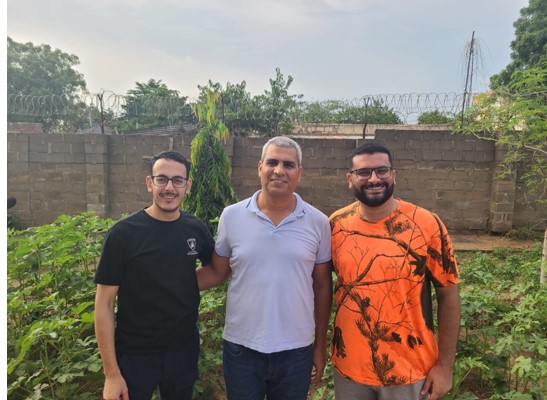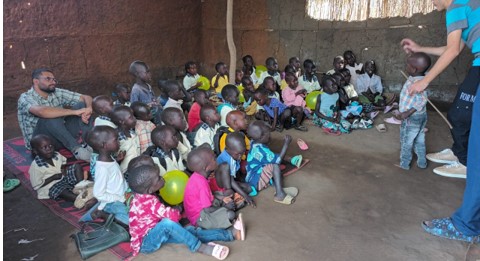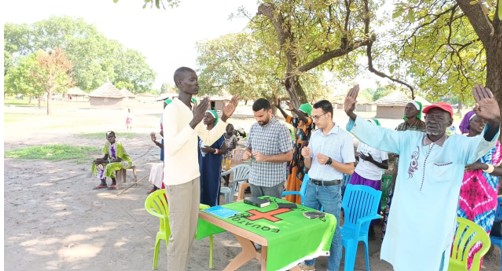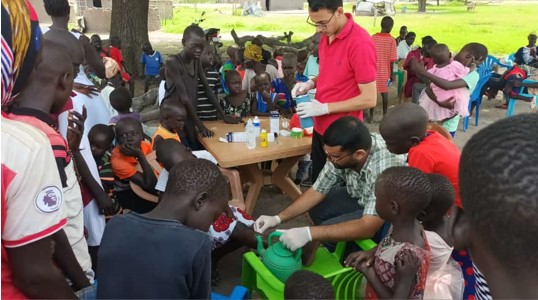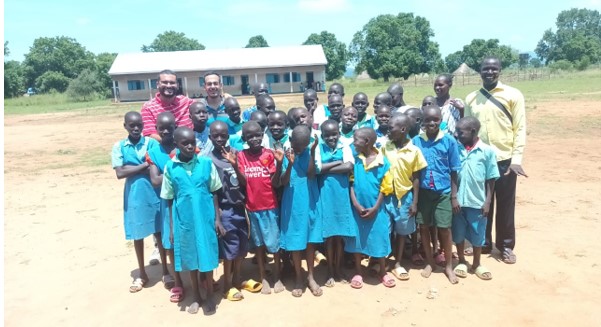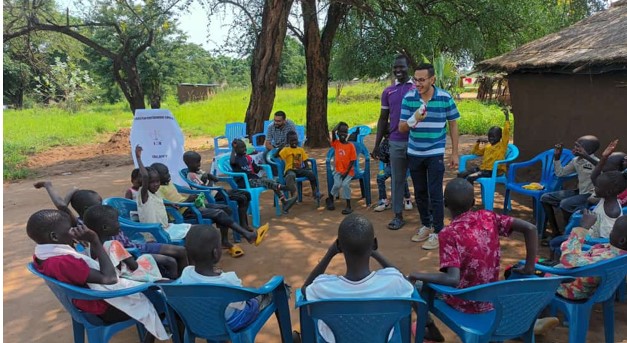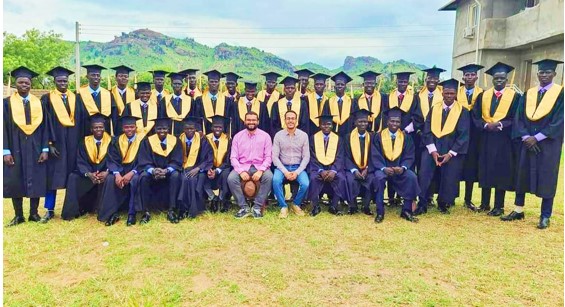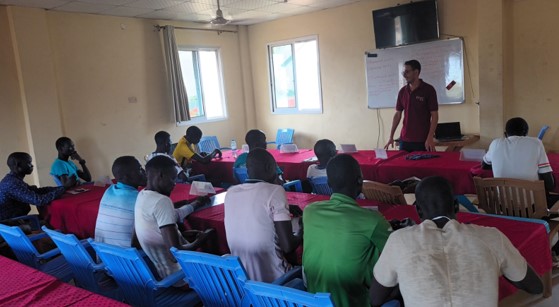A Letter from Esther Shin and Noah Park, mission co-workers serving in Egypt
Winter 2024
Write to Noah Park
Write to Esther Shin
Individuals: Give online to E132192 in honor of Noah Park and Esther Shin’s ministry
Congregations: Give to D500115 in honor of Noah Park and Esther Shin’s ministry
Churches are asked to send donations through your congregation’s normal receiving site (this is usually your presbytery).
Subscribe to our co-worker letters
Dear friends,
Cairo is like a magnet that draws people from neighboring countries. According to the United Nations High Commissioner for Refugees (UNHCR), Egypt hosts more than 756,000 “registered” refugees and asylum-seekers from 62 nationalities. Out of the various ethnic groups, Sudanese are by far the largest. One report says at least a half million new refugees have fled to Egypt after the civil war erupted in 2023. No one knows the exact number of Sudanese refugees. They are seen at every corner in Cairo. The Evangelical Theological Seminary in Cairo (ETSC) always has at least several Sudanese students.
This situation might have helped Fady and John choose their summer internship training in South Sudan. They were selected and sent by Dr. Sheriff (professor of missiology) to the Tyrannus mission school as part of the MDiv curriculum of ETSC. Their supervisor in Juba, the capital city, was Rev. Hani who was a graduate of ETSC in 2020. I remember him as a student engaged in Sudanese ministry back then. Currently, Hani is a member of the mission personnel team from the U.S., Kenya, and Egypt. For three months, the two students served at the mission school, and from there they explored local villages for ministries.
One of the reflections both Fady and John shared is their genuine appreciation of what they have in life. They became thankful to God for the simplest things like water and clothes. Their experience of South Sudan was a series of shocks. Outside Juba, electricity and water were supplied for only a couple of hours a day. Local villagers mostly lived in huts made with local materials. Food and drink were not available to buy, not to mention internet service. Often, they had to depend on the food they brought from Cairo. Fady suffered from malaria and had a high fever for 10 days despite the medication he took.With all these difficulties, however, the two students enjoyed their first travel abroad. They interacted with the Tyrannus students who only receive theological education for several months. They taught the Tyrannus students how to use the personal computer with the MS Office program. At local churches, they led children’s gatherings with sports and activities. They visited homes, hospitals and prisons with Tyrannus graduates. They spoke in Arabic and English, now the official language. Yet, with local villagers, they communicated through interpreters. It is known that at least 60 tribal languages are used in South Sudan.
The following story shows what their new experience was like. One day, Fady and John made home visits in a local village. Encountering a sick girl, they gave her some basic medication and prayed for her. The next day, to their surprise, the girl was healed and the good news was circulated to all villagers. The following day, they visited a home with an old lady who had been suffering from sickness for a long time. They first preached the gospel with Jesus’ healing stories. Though she was known as a cow worshiper, she did not hesitate to accept Jesus Christ as her Lord and received a prayer from the two students.
The field training helped Fady and John open their eyes to mission work outside Egypt. They came to understand how blessed they are in Egypt with the things that are available. They also became so proud of themselves that they succeeded in being patient and overcoming daily difficulties in a totally different situation. At the same time, they saw the immediate impact they could have on the students at Tyrannus and people in local villages. Fady and John both strongly experienced God’s hands throughout the internship and came to reconsider their calls after graduation in less than one year.
This academic year, ETSC received 166 new students, and the total number of students registered is about 700 from 17 countries. Compared to the total number of 70 in the year 2000, the seminary has grown 10 times, and out of a total ETSC alumni of 1,500, we have taught about half of them since we arrived in Cairo in 2016. With this remarkable number, we often wonder what God is planning for their futures. Especially with the near demise of Christianity in the Middle East amid recent wars and civil wars, we believe the presence and growth of ETSC must mean something in Christian history.
ETSC’s mission statement reads, “To prepare, equip and train pastors and leaders of the Evangelical Presbyterian Church and other denominations in Egypt, the Arab world and the Arab communities abroad …” With a good number of ordained and non-ordained graduates serving faith communities in 32 countries outside Egypt, we pray that our students have a vision and empathy for the word like Fady and John did during last summer. ETSC is a missional institution that must respond to the regional situations and the demands of the Arabic speaking congregations around the world.
Thank you for your continued support and prayers for our ministry at ETSC.
Peace and Love in Jesus Christ,
Noah Park and Esther Shin
Associates for Ecumenical Partnership in Egypt
![]() You may freely reuse and distribute this article in its entirety for non-commercial purposes in any medium. Please include author attribution, photography credits, and a link to the original article. This work is licensed under a Creative Commons Attribution-NonCommercial-NoDeratives 4.0 International License.
You may freely reuse and distribute this article in its entirety for non-commercial purposes in any medium. Please include author attribution, photography credits, and a link to the original article. This work is licensed under a Creative Commons Attribution-NonCommercial-NoDeratives 4.0 International License.
